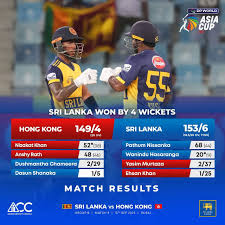Hong Kong vs Sri Lanka: A Look at Two Diverse Regions

Introduction
The ongoing dynamics between Hong Kong and Sri Lanka exemplify how geographical, cultural, and economic factors shape distinct identities. Understanding the contrasts and similarities between these two regions is essential for travellers, businesses, and policymakers alike. With Hong Kong’s status as a bustling financial hub and Sri Lanka’s rich cultural heritage and emerging economy, the comparison offers insights into their paths and potential.
Geographical and Cultural Overview
Hong Kong, a Special Administrative Region of China, is known for its vibrant skyline, busy harbour, and a blend of East and West. It boasts a unique history as a former British colony, influencing its modern legal and social systems. In contrast, Sri Lanka, an island nation in South Asia, is celebrated for its biodiversity, ancient temples, and varied landscapes – from stunning beaches to lush tea plantations. The cultural identity of Sri Lanka is deeply rooted in Buddhism, with strong influences from Hinduism and colonial histories.
Economic Comparison
Economically, Hong Kong is a significant global financial centre with a robust service sector, especially in banking and finance. It has a high standard of living, albeit with challenges related to housing affordability and income inequality. Sri Lanka’s economy, on the other hand, heavily relies on agriculture, tourism, and remittances from Sri Lankans working abroad. Following years of civil conflict, Sri Lanka has been focusing on rebuilding its economy and enhancing its international trade relations.
Tourism Dynamics
Tourism plays a vital role in the economies of both regions. Hong Kong attracts millions of tourists who seek its urban attractions, culinary delights, and shopping experiences. The city hosts numerous festivals and cultural events that enrich its tourism appeal. Sri Lanka, known for its scenic beauty, attracts visitors interested in exploring its historical sites, wildlife, and tropical beaches. Recent investments in infrastructure and marketing have boosted Sri Lanka’s visibility as a travel destination, particularly as it recovers from the impacts of the pandemic.
Conclusion
In conclusion, while Hong Kong and Sri Lanka share some common challenges and opportunities due to their unique geopolitical positions, they are distinctly different in their cultural backgrounds, economic structures, and tourism strategies. Observers anticipate that both regions will continue to develop and adapt to changing global conditions, potentially leading to more collaborative efforts in sectors like trade and tourism. For readers and stakeholders, understanding these regions’ contrasts is crucial to navigating the complexities of the Asia-Pacific landscape.









